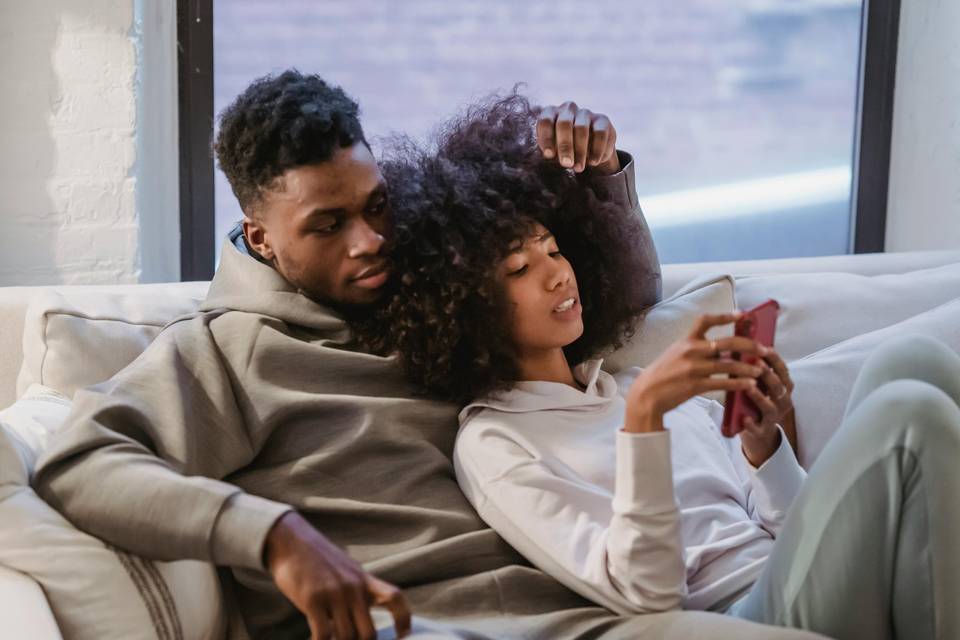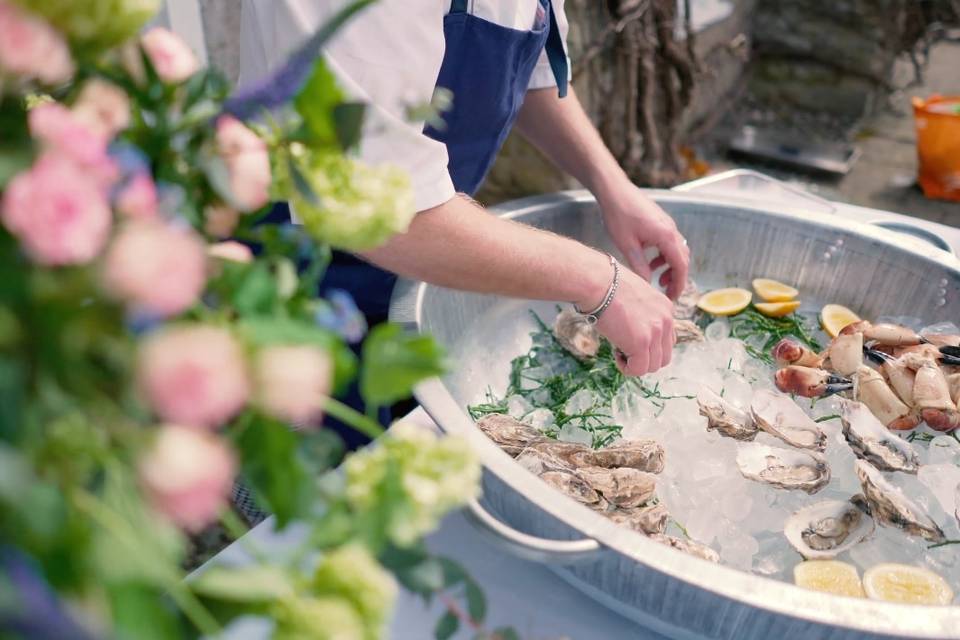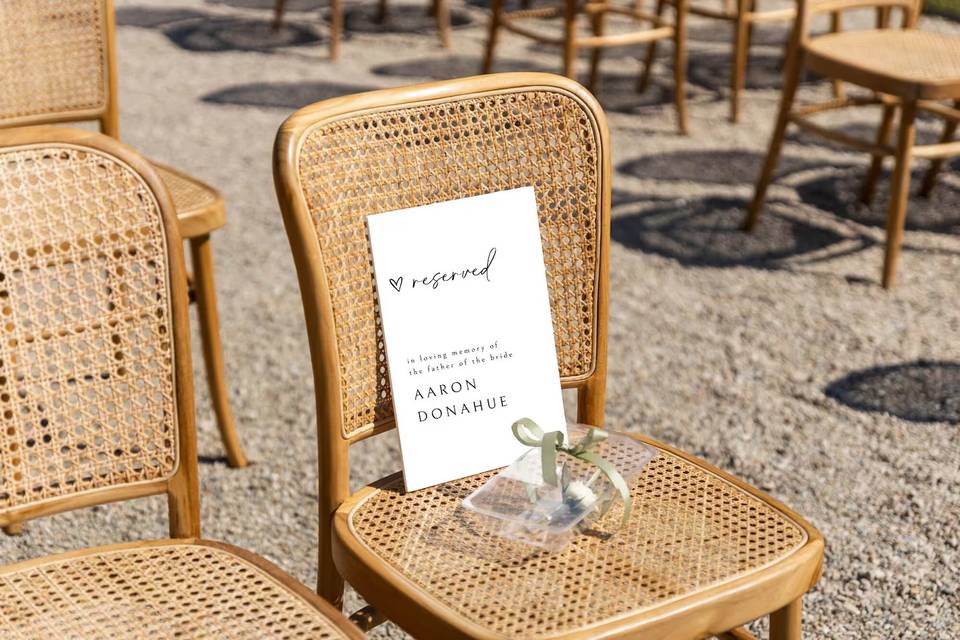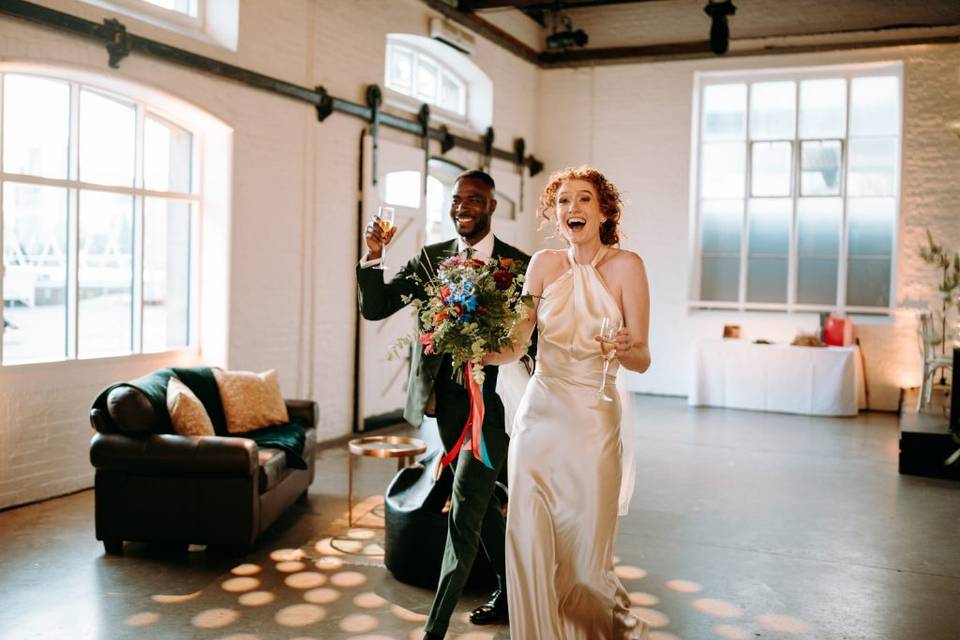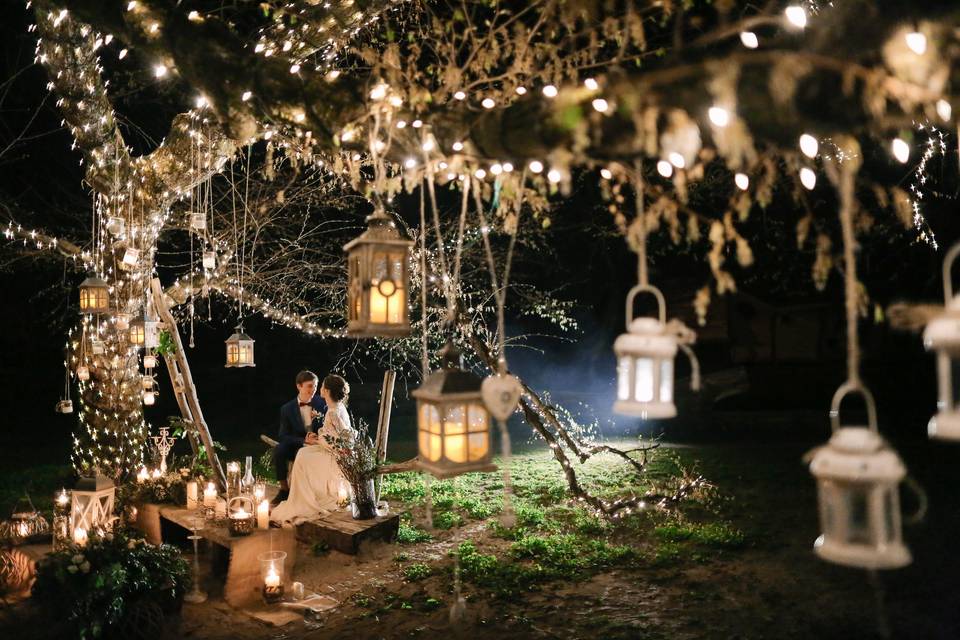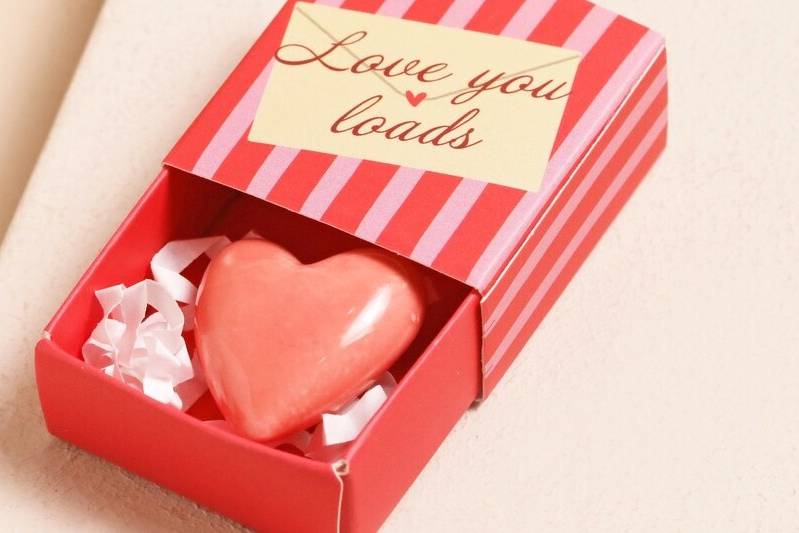Wedding Safety Manifesto for Vendors, Venues & Couples
Following on from our story about the harassment a number of wedding vendors have experienced at weddings, we came together with a group of ambassadors to create a safety manifesto
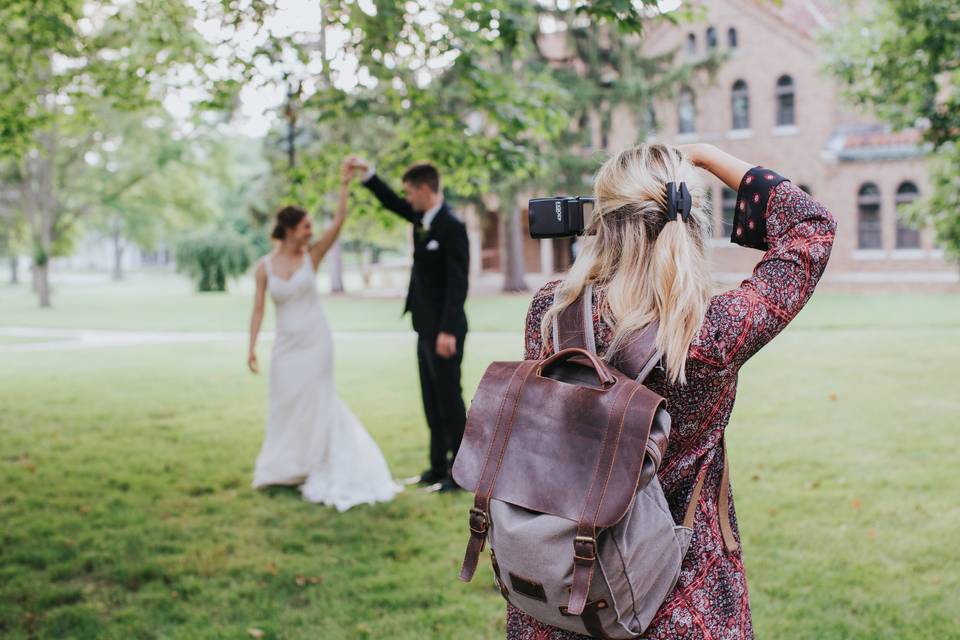

This manifesto is for informational purposes only, and is not intended to provide legal or financial advice. We recommend that you consult with your legal counsel regarding your specific circumstances.
Hitched has teamed up with a number of wedding industry professionals to create and distribute a wedding safety manifesto, complete with a ‘safe working space’ badge that businesses can use to show that they have read and adhere to the practises outlined in this manifesto as part of our #MyRites campaign, devised to help wedding vendors who have been threatened or harassed at a wedding.
The purpose of this manifesto is to inform, educate and empower - we want to inform individuals of their rights if they are harassed, to educate wedding pros and couples about how to handle harassment at weddings, and to empower wedding businesses to know their rights and call out inappropriate and unacceptable behaviour.
“No one likes to think that their wedding will be one where it is even necessary to have harassment clauses, measures, preventions in place and I understand how tempting it is to brush over this guide as one that doesn’t concern them,” says wedding photographer Kim Williams, whose viral post about what she experienced at weddings in 2021 started a huge conversation about the unacceptable behaviour some vendors have been subjected to at weddings, and the difficulty around how to handle it.
“The fact is that thousands of wedding suppliers - the vast majority being non-cis het white men - have experienced harassment at not only one wedding, but at a significant proportion of the ones they have worked. And of course this doesn’t only apply to weddings. I really believe that by implementing this guide, as couples planning weddings, as venues, as suppliers, we can not only make the wedding industry a safer one, but make genuine, lasting change in the world. It has to start somewhere, why not start with weddings?!”
How to be a Safe Space
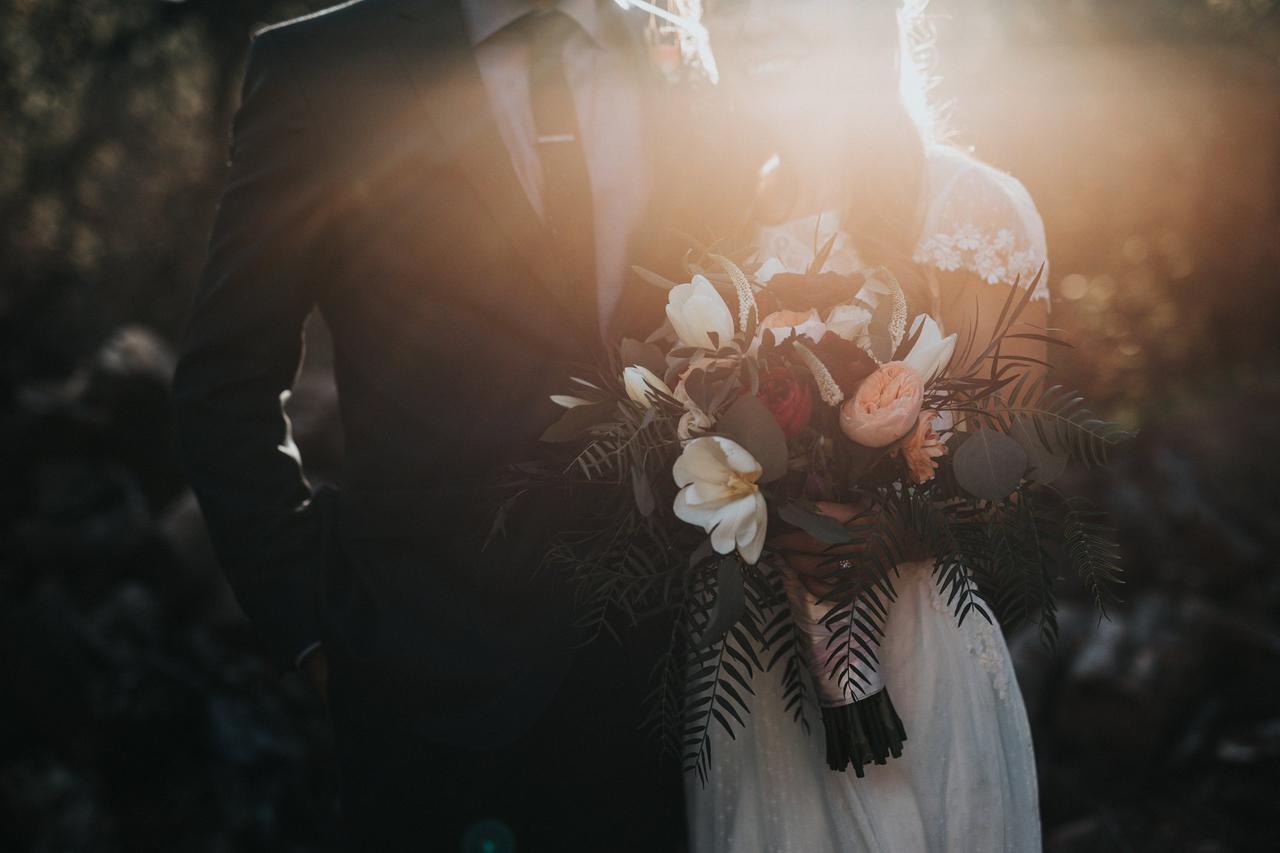
It’s crucial for wedding professionals to know that they are working in a safe space and that any inappropriate behaviour towards them will not be tolerated and action will be taken.
If You Are a Couple
- Read and understand your suppliers’ wedding contracts, paying particular attention to any anti-harassment clauses.
- Advise any guests who you know are likely to behave inappropriately that it won’t be tolerated - or better yet, if you know they will not behave acceptably, don’t invite them.
- Nominate a ‘safe person’ in your wedding party to deal with any complaints - you can include their details on your wedding website, and display signage like the template below at your venue to make sure people know who to contact.
- Don’t blur the lines - it’s amazing to get on well with your wedding pros, and it’s a testament to our industry that couples love their vendors so much, but make sure to respect their wishes. If you invite a vendor to stay on for a drink and they say no, respect that and don’t try and encourage them to stick around.
If You Are a Venue
- Have a named safe person on your staff for the day, and let suppliers know who it is when they arrive. If there’s a changeover for the evening, advise any suppliers still working who will takeover.
- Train all staff to understand how to spot inappropriate behaviour, how to deal with it and who to go to for help.
- Have conversations with your couples ahead of their wedding so they know what your procedures are.
- Provide couples with the safe space signage if they don’t already have it to encourage them to nominate someone in their wedding party.
- If you can justify it, look into having security at your wedding venue.
- If security isn’t a plausible option, make sure you have adequate lighting outside your venue so no one is vulnerable walking to their car alone, or offer vendors an escort from your staff to their car.
- Vet the businesses that you list as ‘recommended’ on your website, and take on feedback you’re given about them.
Nicola Evans, owner of Ever After, a Devon wedding venue, says that the recent stories she’s seen shared on social by wedding businesses have caused her to examine how she approaches wedding bookings: “I’ll be emailing all our big wedding couples booked for this summer over the next few weeks to open up this conversation. I’ll ask for their support by nominating a member of their wedding party who will be the safe person we can go to with a harassment issue on the day.”
Nicola is also creating resources for suppliers who work at her venue: “I’ll be issuing written cards to all suppliers on the day to let them know:
- We will not tolerate any harassment behaviour from any guest or other supplier
- The named person they can come to with any harassment/safety issue
- There’s a safe space they can take a break away from guests
- There’s an escort service available at the end of the evening to take them to their car”
Bearing in mind what a delicate situation this can be, we asked Nicola how she advises her staff to handle complaints:
- Speak directly with the person making the complaint, ask them what action they would be comfortable with. I have had situations where the person has been adamant they don’t want me to speak directly with the other person. That needs to be respected
- With the complainant’s permission, speak with the other person and warn them their behaviour has caused concern, ask them to stop and (depending on the circumstances) say the matter will be reported to the couple if it’s repeated or is being reported to the couple. Again depending on the severity, warn the person that they will be asked to leave the event if there is any repeat.
- Depending on what the complainant is comfortable with, ask the other person to apologise to the complainant, not every complainant would want that.
“This is all with the caveat that the behaviour complained of is not a criminal offence (e.g. physical/sexual assault) which is a police matter,” She explains. “I think the bottom line is to support the complainant with what they would like to happen and to try to deliver that outcome for them.”
If You Are a Wedding Business
- Implement an ‘anti-harassment clause’ into your contracts and talk your couples through it ahead of booking so they know exactly what it means.
- Introduce yourself to the other vendors working on the day and look out and support each other.
- Call out inappropriate behaviour if it’s safe to do so - if it’s not safe to do so, support the people or person it affects, and find another way to call it out.
Understanding the Need for Safety at Weddings
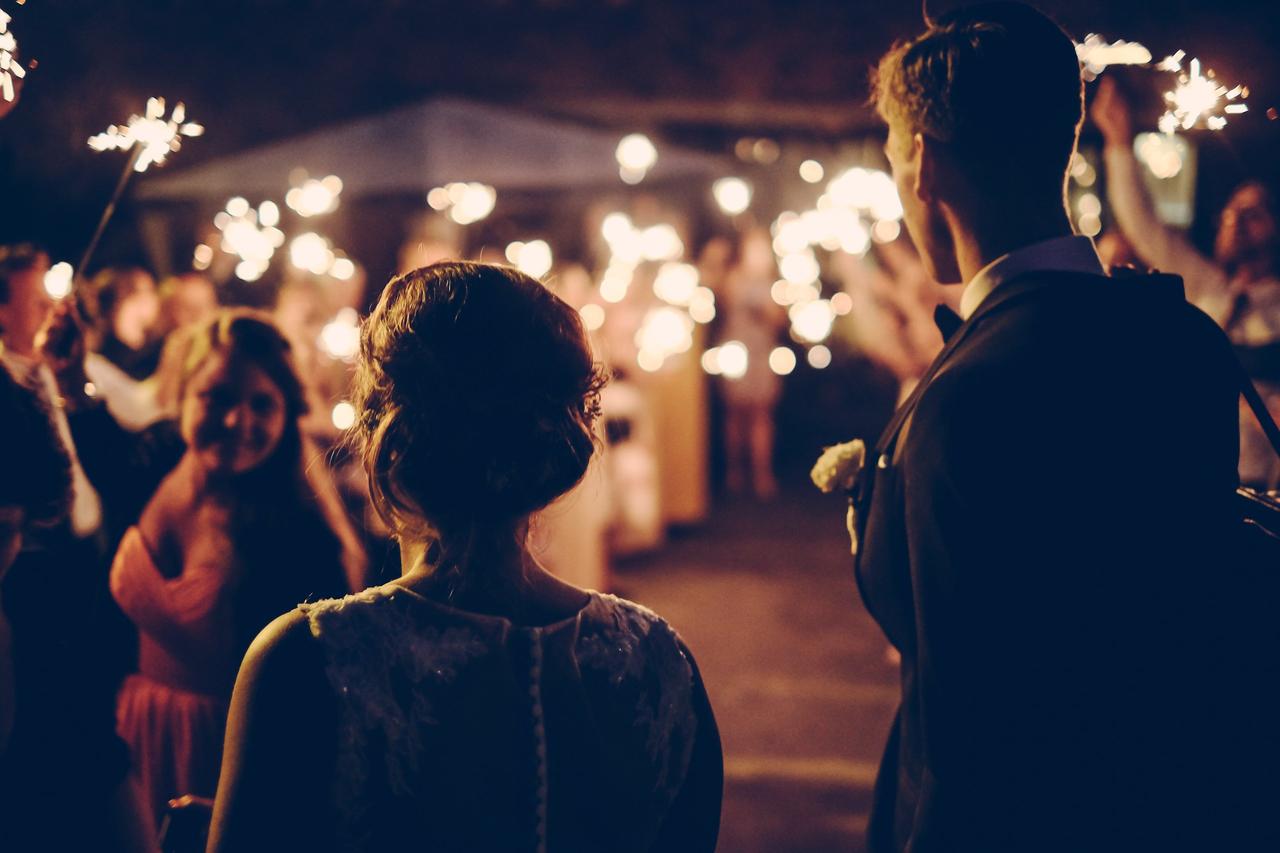
Most weddings are a joyous affair, it’s true. We discovered that 7.5% of those who have attended a wedding* (whether as a guest or a supplier) have felt unsafe. It’s a small number, but it’s significant in that it shouldn’t exist.
We need to normalise calling out inappropriate behaviour, creating safe spaces and making people aware of what will and won’t be tolerated at weddings.
“I have personally suffered verbal abuse (usually around closing the bar at the end of the evening and refusing to serve drinks past our licenced time), I have also been picked up, hugged and generally had numerous instances of unwanted touching that I will no longer tolerate,” explains Nicola, “It’s brought on by people drinking – they often start drinking early on a wedding day. We need to stop excusing harassing/criminal behaviour when someone has drunk too much and focus on the behaviour itself which is appalling.”
Wedding photographer Caroline Goosey, who first shared her experiences of harassment whilst working at a wedding on her Instagram page last year, says: “Security would make such a material difference to those of us working on the day at a wedding.
“From my experience as a photographer, the drinking starts in the morning and the behaviour deteriorates as the day goes on. This can lead to getting followed by wedding guests, heckling and foul language (dressed up as banter), people taking photos of me and those working for me, trying to grab me and dance with me, and trying to grab my camera. This invariably gets worse towards the evening.
“Sometimes I haven’t enforced the anti-harassment terms in my contract when I really should have done. I’d love to see plain clothes security guards around who are prepared to step in when they see things getting uncomfortable. Venues that have security are a joy to work at, and I’ve never had any trouble in these places.”
She also addresses the importance of couples and venues nominating a safe person for anyone feeling uncomfortable to turn to: “Having a safe person to seek out when things get hairy would also be a very welcome shift. Since talking more about this stuff on my Instagram account, I’ve heard from one or two venues and on the day planners that they’re going to do exactly this. It makes me so glad to know that when I next work with them I’ll be safer.
“Some couples and wedding guests know that their friends are a liability, and it would be wonderful if they could divert their troublesome friends away from us. We’re just trying to do our jobs. The more we can normalise conversations about keeping everyone safe, the safer everyone will be.”
Anti-Harassment Clauses in Wedding Contracts
Whether you’re a wedding business or a couple, it’s important to understand anti-harassment clauses in wedding contracts.
We asked Farima Perry, solicitor for Perrys Law, a firm providing legal advice for the weddings and events industry, to draft some copy that businesses can include in their contracts to protect their interests if they have to leave a wedding due to harassment in any form.
“Harassment is both a criminal offence and a civil action under the Protection from Harassment Act 1997,” explains Farima, who as well as being a solicitor, is a wedding planner and floral designer, making her familiar with the tricky position vendors are in at weddings. “If you do ever suffer from harassment in any way or form, this should be reported to the relevant authorities.
“However there are certain clauses that you can incorporate into your contract to protect yourself from any commercial loss, should there be an incident where you need to terminate your services.”
What Should My Anti-Harassment Clause Say?
Farima has put together the following copy that vendors can be inspired by to include in their contracts (words capitalised in the below example would need to be defined):
“We will not tolerate any abuse or threatening behaviour to any of our team or staff [or abuse of our Equipment]. If this occurs, We retain the right to terminate our services immediately. This applies equally to You, the Client, and your guests. [We may also terminate our services where our staff or team feel any Equipment belonging to Us is in danger or has been damaged due to the actions or unruly behaviour by You or your guests]. Wherever possible and reasonable to do so, We will speak with You or the venue first to try to resolve the matter before any termination is enacted. If We do terminate our services, for any reason, the full cost of our services [and the full cost of hire of our Equipment] will remain due and We will not issue any refunds for any period that our service [or hire of Equipment] was not provided. [Moreover, You the Client will be responsible for any damages caused by You or your guests or other attendees at the event to Us for any damage to our Equipment, howsoever caused]."
What Does My Anti-Harassment Clause Mean for Me as a Business?
The trickiest part of calling out or drawing attention to harassment at a wedding is often causing upset to the couple - who may be unaware of anything untoward happening, as well as the risk for the business owner. If a business wants to leave a wedding due to unpleasant or unacceptable behaviour, what’s the consequence? The above copy provided by Farima and having open conversations with your couples will help you to be better equipped to protect yourself, should you find yourself in an unpleasant situation.
It’s important that the couple employing the business understand the impact of the clause and what should happen if it's breached.
Nicola agrees that it makes sense for wedding businesses to have clauses in their contracts: “Venues should have provisions in their terms and conditions with couples [stating] that the couple is responsible for their guests’ behaviour at their wedding and that we have the right to remove individual guests or if necessary, stop the event.
“I already have those provisions in my terms and conditions but it’s not something I have specifically discussed with couples. So far, a threat to remove guests has been enough to change behaviour on the day.”
Safe Space Wedding Badges
If you are a wedding business and you want to participate in making weddings safer for those working at them, please display one of the safe working space badges, as well as following the steps above, so couples and other businesses know you observe/support/follow the safety manifesto. You can include a link to the manifesto to ensure it’s accessible to others if you wish.
Choose the badge you’d like to display from our free selection here.
Our safe person signage template is available here.
*Informal Instagram poll of 2,888 by @hitcheduk


